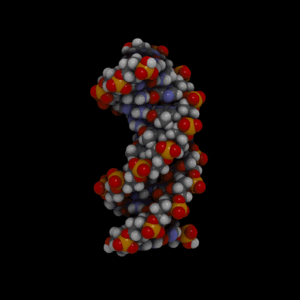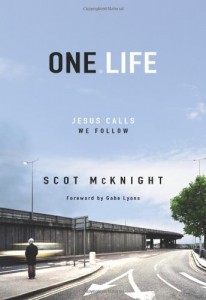 This morning I spoke at my church about how I think Christians should think about the issue of how to vote at our Federal election next Saturday. The following is an extended version of a post I put on this website on 7 August.
This morning I spoke at my church about how I think Christians should think about the issue of how to vote at our Federal election next Saturday. The following is an extended version of a post I put on this website on 7 August.
I’ve been thinking a lot about how to approach this, because politics of course is a very sensitive issue; it brings out both the best and worst of us. It can cause normally rational people to be irrational, and so I’m aware that I need to be very careful about what I say. That’s why I want to bring across some points as to how I want to approach this topic and how I think a Christian ought to think when deciding their vote.
Firstly, I come at this topic first and foremost as a follower of Jesus and not to endorse any political party. These thoughts do come out of a deep concern for biblical faith and as a follower of Jesus who asks for God’s will to be done in his life every day. I can’t be so arrogant as to claim to know who Jesus would vote for, but I do believe there are particular biblical principles to keep in mind when deciding which way to cast our vote next week.
Secondly, we are amazingly privileged in this country. We are a peaceful democracy where we have the freedom to vote for who we wish. Dave Andrews recently related how he was speaking to someone who I think was from Pakistan, and they couldn’t believe that we could place our vote and there could be a change of Government without any talk of corruption, that the losing party would hand over power without any resistance and that it would all happen peacefully. He couldn’t believe it. Yet this is what we take for granted.
Thirdly, Christianity is not a set of values. When talking about an election and how we should vote, it obviously does relate to a set of values and which party we think will live that out. But ultimately, Christianity is not about that; it is about God transforming the creation, not just societies but the human heart as well.
Fourthly, Christians of all persuasions are politically active, and Christians have a right to vote according to how their faith informs their vote. And there are Christians in all political parties, which just shows the different ways in which our faith is expressed, and what God has called different people to.
Fifthly, it is vitally important for Christians to be involved in the political process in one way or another. God loves this world and we are called to love what God loves and seek the betterment of the world around us. In fact the word ‘politics’ in its Greek root means of and for citizens – for the people. So political involvement in some form or other is a godly way of living out your faith. For some that might mean writing letters to your MP, while for others it might mean joining a political party or even running for office. Some people say that the best way to effect real policy change is to join a political party while others would say that to be part of a lobby group has the best effect at change. Personally I believe that prophetic political engagement is one that has access to those in power but is able to remain neutral and speak God’s Word without compromise and without endorsing a particular party overall. Some can do that from the inside, such as the prophet Daniel in the Old Testament who was high up in the Government of his day. So God uses people in all sorts of ways.
Sixthly, I don’t agree that the pulpit should ever be used to promote any particular political party, either subtly or overtly. What matters is that, whoever you vote for, that we vote according to Christian principles and that we vote as a follower of Jesus. The pulpit is not a place to endorse a particular political party.
Seventh, I think it’s important to expose ideas which claim to be Christian but which clearly are not. Of course there are different interpretations of what is Christian and what is not, but some things are clear. In some cases I believe it is right to name names. Paul did so in 2 Timothy, and Jesus did so as well. However as I have not met the Christian leaders who I believe have made some dangerous statements in this election campaign, I will not name them here. You can look them up for yourselves. I do believe though that when people make public statements they need to be open to public scrutiny. We should never attack them personally though; we should only attack their policies with a reasoned argument that is biblically based. I believe in these people’s sincerity as people who love God, but I also believe that it is possible to be sincerely wrong. I am also open to the possibility that I am sincerely wrong. So whatever I say about this topic in this sermon, don’t just blindly accept it. Acts 17 says that “the Berean Jews were of more noble character than those in Thessalonica, for they received the message with great eagerness and examined the Scriptures every day to see if what Paul said was true.” So rather than just accepting what I say, go back to your Bibles and check it out for yourself.
Eighth, I believe that any reading of the Bible simply has to be done in context, and therefore the issues that Christians claim the Bible has a clear statement on need to be looked at in the context in which they were written and in the context of the overall message of the Bible. It has been said, rightly I believe, that we often read the Bible too devotionally ie. we take little passages or verses and don’t read them in the light of the overall message of what God is saying to us through His Word.
Along those lines one of this country’s more prominent Christian leaders, in a recent newsletter, effectively said that you cannot be a Christian and not vote Liberal. Here’s what he said, and I quote – “If you still say “I will vote Labor” that is your choice. That’s the freedom we enjoy in a democracy, but I must say you definitely cannot be a Christian who has a proper relationship with Jesus if you vote this way.” And many of us here will no doubt think the opposite.
I was also at a wedding on election day 2007 where the MC said he hoped the Liberals would win. I thought that was inappropriate at that time, just as I think it would be inappropriate for someone to get up in the pulpit and say you should vote for a particular party if you are a real Christian. There will be people in churches all over this country with a diverse range of opinions.
One guide as to how a Christian should vote that you may have come across recently is the Australian Christian Values checklist. This checklist shows a large number of issues and where the parties stand on each of them. Each party then receives a tick or a cross depending on whether or not they support these ‘Christian values. This list however simply does not represent the full spectrum of Christian values. There is literally nothing on refugees and asylum seekers, nor anything whatsoever about caring for the poor. Thank goodness for that. Here I have been all these years working on these issues thinking they were Christian(!). It seems I can take a rest for a while.
The language that is used to endorse the Australian Christian Values checklist is deliberately aimed at supporting particular parties and denigrating others. Terms like ‘the abortion holocaust’ clearly imply a particular voting position. Now please don’t misunderstand me on this. I am not saying that abortion is not an important issue. Just like issues of poverty are often ignored by those on the right, issues like abortion are equally ignored by those on the left). But you will notice that in the advice given on the website that endorses this checklist, there is not one word about the holocaust of 24,000 children dying of poverty every day around the world. As Jim Wallis from Sojourners has said, why is it that for some Christians, saving the lives of children in the womb is paramount, but as soon as they come out of the womb we don’t care about them anymore? The same could of course be said the other way too.
Now when asked why his position did not include anything on issues of poverty and asylum seekers, one Christian leader who endorses this checklist says that the Bible is clear on some issues like abortion, and that’s why they were featured in his articles and in the Australian Christian Values checklist. Then he says that the Bible gives some leeway on other issues but there is room to move on ways to achieve things like economic justice. So is the Bible not clear on issues of wealth and poverty, and are there not different ways of dealing with the abortion issue? This is not a neutral checklist. It clearly promotes certain parties against others. Where I believe these people have it wrong is that I believe that everything we know about God we know through Jesus who loved those who were powerless and marginalised. It seems that is not the position taken by those who have put together this checklist.
Thankfully though the other side is also being reported. The ABC had an article a couple of weeks ago in which a candidate from another party who is a Christian tells her side of the story about why she is a member of that party.
So to promote issues of wealth and poverty, I think it is best to show a list of issues that the Sojourners community in the US put forward prior to a recent election over there. They released these statements before the 2004 election under the heading, ‘God is not a Republican. Or a Democrat’. While the statements released by Sojourners were intended specifically for the US election, they apply equally to our own election in Australia. And so we can say that God is not a Liberal, nor Labor, nor a Green, or tied to any other party. They are a very useful guide when we think of who to vote for on August 21. You can also find this list in an article by Tim Costello in this month’s Eternity magazine. The points listed are as follows:
- We believe that sincere Christians can choose to vote for any party for reasons deeply rooted in their faith.
- We believe that poverty—caring for the poor and vulnerable—is a Christian issue. Do the parties’ budget and tax policies reward the rich or show compassion for poor families? Do their foreign policies include fair trade and debt cancellation for the poorest countries? (Matt 25: 35-40, Isaiah 10: 1-2)
- We believe that the environment – caring for God’s earth – is a Christian issue. Do the parties’ policies protect the creation or serve corporate interests that damage it? (Genesis 2:15, Psalm 24:1)
- We believe that war—and our call to be peacemakers—is a Christian issue. Do the parties’ policies pursue ‘wars of choice’ or respect international law and cooperation in responding to real global threats? (Matt 5:9)
- We believe that truth-telling is a Christian issue. Do the parties tell the truth in foreign and domestic policies? (John 8:32)
- We believe that human rights – respecting the image of God in every person – is a Christian issue. In our case, do the parties have a compassionate approach to asylum seekers? (Genesis 1:27)
- We believe that our response to terrorism is a Christian issue. Do the parties see evil only in our enemies but never in our own policies? (Matt 6:33, Proverbs 8:12-13)
- We believe that a consistent ethic of human life is a Christian issue. Do the parties’ positions on abortion, capital punishment, euthanasia, weapons of mass destruction. HIV/AIDS – and other pandemics – and genocide around the world obey the biblical injunction to choose life? (Deut 30:19)
Barney Zwartz, the religion editor of The Age, wrote a couple of weeks ago something which is really pretty obvious but something which we don’t always consider, and that is that no party is perfect. He highlights this by saying that “whenever we get the perfect candidate, she or he has a habit of disappointing us the most.” Witness the outpouring of hope that came with the rise of Barack Obama. I remember thinking at the time, paraphrasing Monty Python, that he’s not the Messiah, he’s just the President, and he’s inevitably going to disappoint. Whoever you vote for, they are going to disappoint you.
As well as this, there are going to be policies in every party that we won’t agree with. You might vote for a particular party with your Christian conscience and someone will come up to you and ask how you could possibly be a Christian and vote for them?
One of the issues that has arisen amongst Christians in this election campaign is that of voting for someone because they are a Christian. I think that is one of the most irresponsible actions that a Christian voter can take. It shows a profound ignorance of the issues that different parties stand for. Tim Costello sometimes tells the story of the South African government during the apartheid years. They were all Bible-believing Christians. They believed all the right things but they were inherently racist and therefore an evil regime. Recently there’s been talk of Julia Gillard’s atheistic position. I agree though with Tony Abbott when he says that we should vote for a person not because they are a Christian or not, but because of their policies. Real faith is lived out, not just proclaimed.
Whichever party you plan to vote for, there are certain things that Christians need to take into account. The core of this is about voting for those less fortunate than ourselves. It has been said by quite a few people over the years that the measure of a society lies in how it treats its most vulnerable citizens.
In recent times the place of Christian faith in politics has gained traction in the media. Of course we all knew about the previous Prime Minister’s faith position, and how the current Prime Minister’s own position as someone who does not profess a Christian faith. And a couple of months ago we had Kevin Rudd and Tony Abbott speaking to Christians across the nation in a live feed from the old Parliament House in Canberra. I think it’s great to see Christian faith getting an airing during this campaign, all sides of the story being laid out for all to see and decide on.
In the end we need to vote prayerfully and with our conscience. The final word is probably best left to the Brotherhood of St Laurence, who came out with a pearler during a past election. It simply said “vote for somebody else.” Amen.












